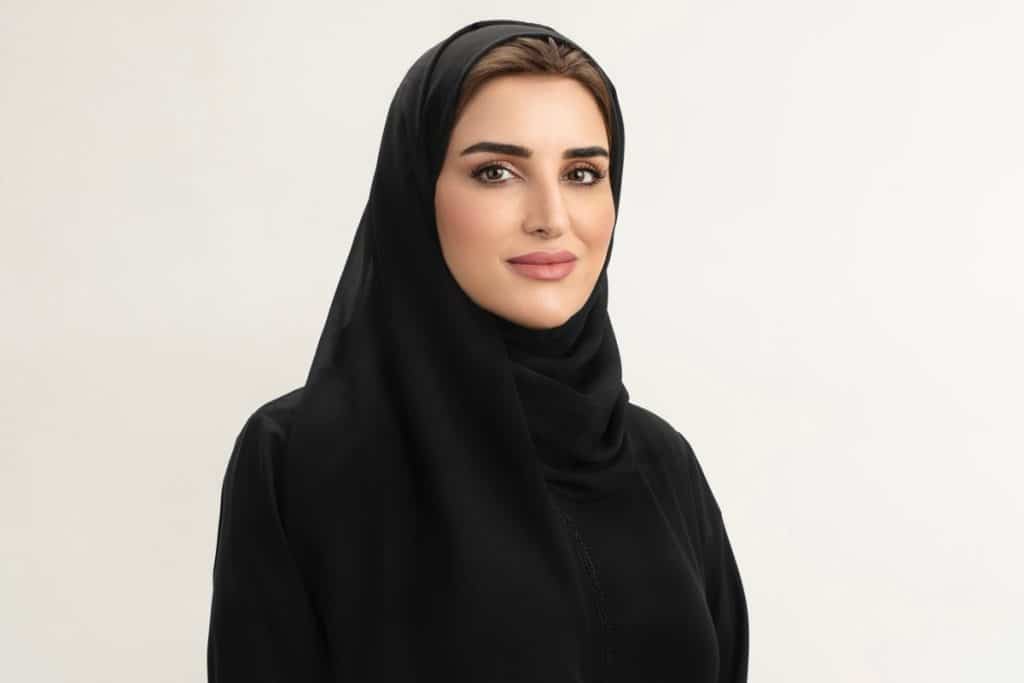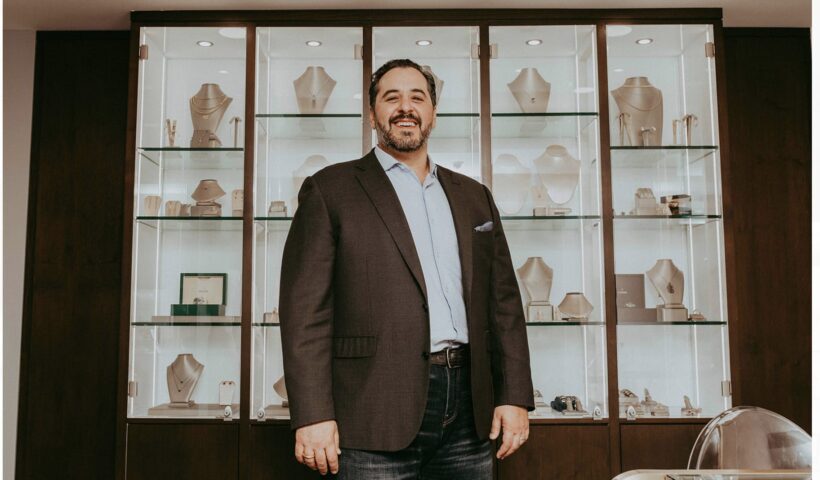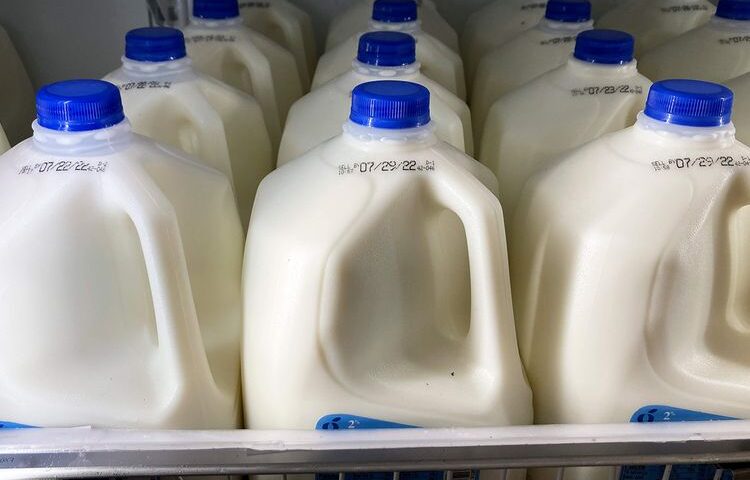The growing stature of Dubai as a tourist destination is redefining developers’ strategies
The post How hospitality is reshaping Dubai’s real estate landscape appeared first on Gulf Business.
The post How hospitality is reshaping Dubai’s real estate landscape appeared first on Gulf Business.
Blog
Honor’s chairman emphasises MEA region’s importance during his visit
At the heart of our values lies product innovation, and we are committed to investing substantially in research and development, says Wan Biao
The post Honor’s chairman emphasises MEA region’s importance during his visit appeared first on Gulf Business.
The post Honor’s chairman emphasises MEA region’s importance during his visit appeared first on Gulf Business.
How technology is pushing forward pension reform
Fintech is improving access to pensions in the Middle East
The post How technology is pushing forward pension reform appeared first on Gulf Business.
The post How technology is pushing forward pension reform appeared first on Gulf Business.
How to lead a successful hybrid organisation in 2023
Hybrid work requires a suitable environment to support successful outcomes that enable a suitable working environment
The post How to lead a successful hybrid organisation in 2023 appeared first on Gulf Business.
The post How to lead a successful hybrid organisation in 2023 appeared first on Gulf Business.
Fine jewelry designer Avedis Guerboian says that technology plays a huge part in the success of the modern-day jewelry business.
He is one of the creators behind the bespoke jewelry pieces that his brand Edward Avedis Fine Jewelry, makes and is proud of how they have leveraged tech in the business.
Entering a field today in itself proves to be a massive challenge and a daunting task, let alone making it huge in the same. However, there have been a few professionals and risk-takers who not only did that but also exponentially grew their brands and businesses. Avedis Guerboian is one fine jewelry designer who drew great inspiration from his father, a master jeweler Edward “Eddie” Guerboian and focused on improving his craft as a jeweler himself to ultimately bring their brand Edward Avedis Fine Jewelry to the forefront of the industry both online and offline across Santa Monica and Canoga Park, CA.
The fine jewelry designer says that in today’s time and age when everything has almost gone digital across industries, it is necessary for jewelry designers to focus on this aspect and work around ideas and visions that can leverage tech to offer greater services to clients. This, he believes, has helped Edward Avedis Fine Jewelry (https://edwardavedis.com/) to grow phenomenally in the online realm. The team has focused on bettering customer experiences with their online store, and for that, they have been optimizing several tech-based trends and strategies in business.
Avedis Guerboian today is known for creating luxurious pieces that have been fine-tuned over six generations of jewelers as this is their family business. He specializes in bespoke creations that showcase his excellence as an artist who loves creating impeccable jewelry pieces that are customized as per the needs of his clients. He trained under the tutelage of Tiffany and Co.’s subsidiary Iridesse Pearls in his emerging years, which added to his craft. He says that he has always gravitated towards a kind of warmth with his pieces. This kept him walking on his path, creating bespoke pieces and classic and bridal collections.
The brand Edward Avedis Fine Jewelry (@edwardavedis) has also remained a top choice for many because they incorporate precious materials not just for their aesthetic but also for their strength and individuality. All this and more has helped Avedis Guerboian take the brand to the top in bespoke American jewelry design.
Masdar, Côte d’Ivoire to develop solar power plant
The plant would support the Republic of Côte d’Ivoire’s goal of 42 per cent of its energy mix coming from renewable sources by 2030
The post Masdar, Côte d’Ivoire to develop solar power plant appeared first on Gulf Business.
The post Masdar, Côte d’Ivoire to develop solar power plant appeared first on Gulf Business.
How hospitals can leverage data-driven video technology
Innovations in the industry have increased opportunities and possibilities of videos and how people and the government can use them
The post How hospitals can leverage data-driven video technology appeared first on Gulf Business.
The post How hospitals can leverage data-driven video technology appeared first on Gulf Business.
How art is being incorporated into investment portfolios for diversification
Developments within the art market over the last decade have been followed almost as closely as those within the stock market
The post How art is being incorporated into investment portfolios for diversification appeared first on Gulf Business.
The post How art is being incorporated into investment portfolios for diversification appeared first on Gulf Business.
Dubai Model Centre to drive UAE to global top in government development
In its 10th year, Dubai Model Centre is currently supporting improvement projects in more than 70 services across 31 government entities each year.
he Dubai Model Centre (DMC), has launched a new project to turn the UAE into a regional as well as international model for government development, making it one of the ten best countries in trust in government, future readiness and smart services indices.
The new project is in line with the vision of Sheikh Mohammed bin Rashid Al Maktoum, Vice-President and Prime Minister of the UAE and Ruler of Dubai.
“The primary goal of the Dubai Model Centre is to work with every government entity in the emirate to enhance the level of service delivery, taking it to unprecedented levels to make the emirate one of the best in the world in which to live, work, invest and grow,” Dubai Model Centre’s senior director Eman Al Suwaidi said.
To achieve this, the Dubai Model Centre will implement two methodologies: the Dubai Model for Government Services (DMGS), a multi-phased collaborative approach for service improvement, and City Makers, a design-thinking approach aimed at improving the customer experience of shared services provided across several government entities, the Dubai Media Office said in a statement on Wednesday.
Both of this will include researching, documenting and sharing knowledge and best practices in local and global arenas.

According to the statement, the Dubai Model is based on four guiding principles:
- Customer Engagement: Obtaining inputs from customers during the design, delivery and assessment of services to ensure their needs are being met.
- Innovation: Inspiring entities to question what they offer to customers and why, and to explore ways of improving quality by encouraging new ideas and developing pioneering initiatives.
- Reasoned Spending: Helping entities align spending priorities to serve the needs and interests of customers.
- Connected Government: Improving service quality and enabling seamless operations by integrating the services of various entities.
Following this the Dubai Model Centre will also “collate” data from every government entity through suggestions, complaints, surveys, audits, focus groups or customer events.
This will eventually be channelled into the Dubai Government Unified Customer Experience Tool, “which measures customer experience and satisfaction at all service touch points,” the statement added.
In its 10th year, Dubai Model Centre is also currently supporting improvement projects in more than 70 services across 31 government entities each year, the statement said.
“Data published in 2020 show that the Dubai Model Centre has improved 370 government services, contributing to almost AED700 million in savings and boosting service quality by 90 percent. These service improvements can be felt in a wide number of touchpoints, demonstrating the Dubai Model Centre’s commitment to improving every possible interaction between residents and the government.”
Under the programme, Dubai Model Centre has launched services such as Smart Salem by the Dubai Health Authority and iDeclare.
The former service utilises advanced robots, FDA-approved digital medical equipment and artificial intelligence to deliver medical fitness tests for UAE residency visa applications. – all within 30 minutes and with minimal human interaction, the statement added.
iDeclare, a smart mobile app launched by Dubai Customs, enables passengers at Dubai International Airport to submit their customs declarations electronically, bypassing the traditional and often cumbersome paper-based processes.
Is plant-based milk good for you? What about for the planet?
Plant-based milk alternatives may be nutritionally inferior to cow’s milk, recommends FDA.
The US Food and Drug Administration released draft guidance on Wednesday recommending that dairy alternatives like almond, soy or oat milks disclose that they may be nutritionally inferior to cow’s milk. Doctors, too, say plant-based milk alternatives aren’t always the healthiest choice, especially for children. The FDA guidance comes as grocers offer dairy alternatives made from an ever-expanding assortment of nuts, cereals and other plants, including coconuts, hemp, oats, peas, quinoa and rice. Worldwide sales of alt-milks are growing steadily, driven both by the needs of consumers who have an intolerance to cow’s milk and the desire of some to reduce the environmental impact.
1. What are alt-milks?
They are beverages made, generally, by soaking a base ingredient in water, often after roasting it, then sometimes blanching or steaming it. In a process called wet milling, water is added and the material is ground up, then filtered. Extras such as stabilizers, thickeners, sweeteners, flavorings, vitamins and minerals may be added, and the liquid may be heat-treated to sterilize it. Finally, the fluid is homogenized so that it approximates the appearance and mouthfeel of cow’s milk. Based on the widely used classification system known as NOVA, developed by researchers at the University of So Paulo, alt-milks fall into category 3 for processed foods or category 4 for those that are ultra-processed, whereas cow’s milk is in category 1 – unprocessed or minimally processed food. The European Union prohibits alt-milk makers from using the word “milk” to market their products, a common practice in the US. The US dairy industry has pushed for enforcement of the FDA’s “standards of identity,” which define milk as a bovine product. US courts, however, have ruled that alt-milks aren’t misbranded because they aren’t sold as actual milk. Judges have said consumers understand that almond milk, for example, isn’t really milk.
2. How are alt-milks selling?
The market for plant-based milk globally may reach nearly $20 billion this year, according to a projection by consulting company Future Market Insights. The growth rate for sales in the previous five years was nearly 8%, according to the company, which expects a rate of almost 10% for the next 10 years. In the US, while the volume of plant-based products has grown, that of dairy milk has shrunk. Alternative milk’s share of pints sold there increased from 5.9% in 2017 to 9.4% in 2022, based on data from the market research company IRI. As a share of revenue, the figures went from 9% of $16 billion to 13% of $18 billion.
3. How many people are intolerant to milk?
In a study published in the Lancet in 2017, researchers estimated that about two-thirds of people worldwide are unable to digest or fully digest lactose, a sugar found in milk and products made from it. This is usually because of insufficient levels of lactase, an enzyme produced by the small intestine. For those with the condition, consuming milk may result in cramps, nausea, diarrhea, gas or bloating. Lactose intolerance is especially common in Asia, the Middle East and Africa, less so in Western Europe and the US. Plant-based milks contain no lactose, though those made from nuts and soy aren’t suitable for people with allergies to those foods. Milk producers have introduced no-lactose and reduced-lactose versions of their product. They accounted for 7% of milk sales by volume in the US in 2022. Alt-milk sales, however, were almost 1.6 times higher.
4. How do environmental concerns factor in?
In recent years, many consumers have said they’re trying to have a positive impact on the environment, including through their purchases, and modern dairy farming is relatively rough on the planet. The main issue is that, as part of their digestive process, cows emit the greenhouse gas methane, mostly through belching. It’s been estimated that dairy cattle account for about 3% of all greenhouse gas emissions connected to human activity. In addition, decomposing manure on dairy farms can pollute water sources. Some consumers are also motivated by concerns about the welfare of farm animals, including dairy cows. Producers of almond and rice milk have been criticized for the amount of water required to grow the main ingredients for their products. However, according to research by the Food Sustainability Analytics program at Oxford University, producing dairy milk is significantly more water-intensive.
5. How well do alt-milks approximate milk?
It varies with the product and the brand. Some reviewers say that almond and oat varieties are the closest match to dairy milk. Some of the base ingredients can produce a flavour that’s slightly off. That matters less when, rather than being imbibed as a beverage, alt-milks are poured over cereal or added to tea or coffee, as milk is about half the time when consumed by adults in the US.
6. How do alt-milks compare nutritionally to milk?
Again, it varies, but generally they are less nutrient rich. That alt-milks typically contain fewer calories can make them attractive for those concerned about weight. Soy options have been found to have similar levels of protein to milk, whereas almond, oat and rice have much lower levels. Cow’s milk also contains a wide assortment of minerals and vitamins that its imitators don’t always match. For this reason, the American Academy of Pediatrics encourages families to mostly avoid plant-based milks other than fortified soy options, unless there’s a medical necessity. Cases of severe nutritional deficiencies have resulted from infants being fed plant-based milk exclusively.


